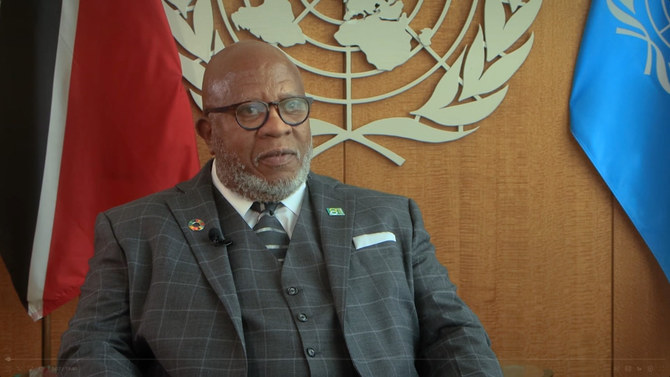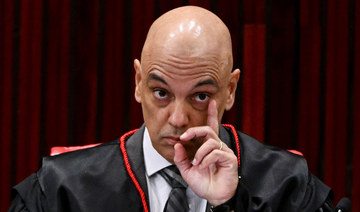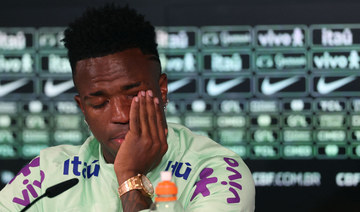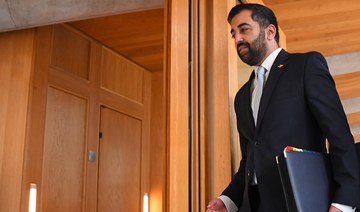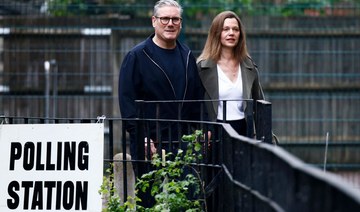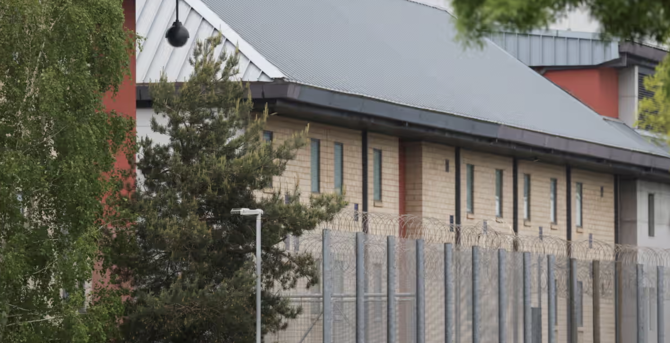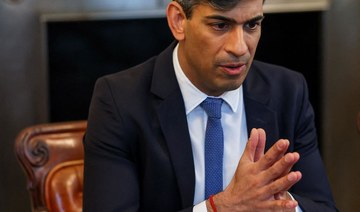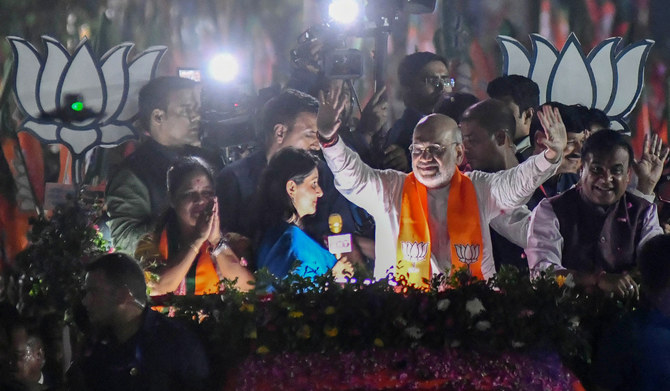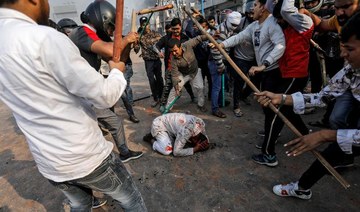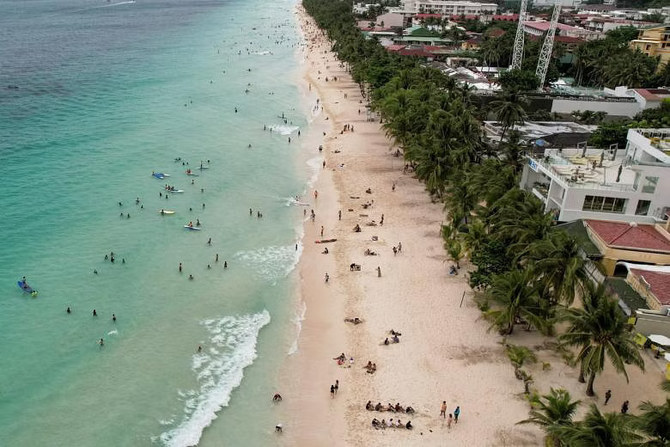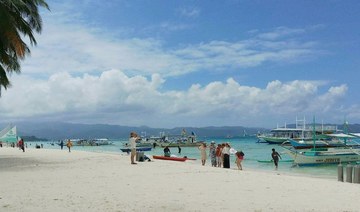NEW YORK CITY: When the president of the 78th session of the United Nations General Assembly took his oath of office and was handed the gavel, he wished “my parents were still alive to witness this.”
At the same time, he reflected on “the burden of responsibility that I have taken on as president of the General Assembly, the burden that has been created by the legitimate expectation of people everywhere in the world, that the United Nations can deliver for them. And that will be my focus throughout the presidency: How best we can mobilize the General Assembly to deliver for people and for planet.”
Dennis Francis’ stewardship of UNGA comes at a deeply challenging moment for the multilateral system. Since it was established a century ago, multilateralism has provided the global framework for peace and stability, but in a world of conflicts and climate chaos, escalating poverty, hunger and inequality, mistrust and division, there are growing concerns that multilateralism is declining or losing relevance.
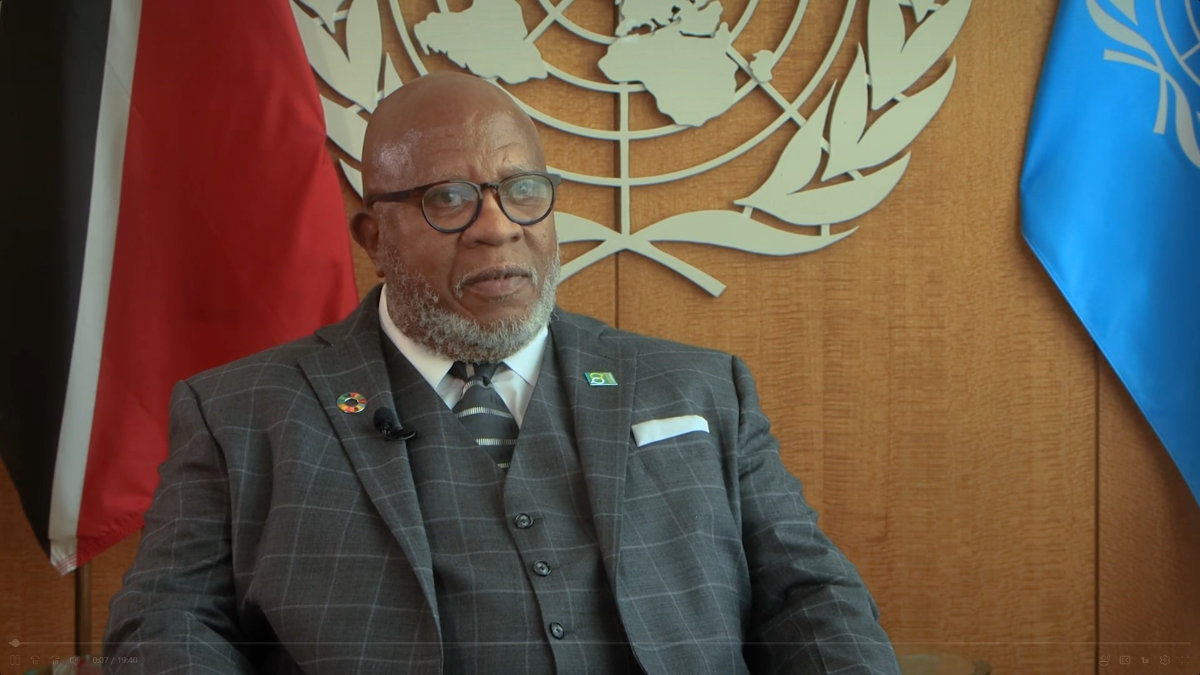
Dennis Francis, president of the 78th session of the United Nations General Assembly, giving an interview with Arab News. (AN photo)
Meanwhile, the difficulty governments are facing in reaching global agreements on trade, climate change and other issues has led many to question whether the multilateral model is still fit for purpose in an era of renewed great power rivalries, nationalism, populism and political economy tensions.
Ahead of the high-level week of the UNGA session, Arab News sat with Francis in his new office at the UN headquarters in New York City, where, in a wide-ranging interview, he outlined his priorities for the year to come.
Francis has spent years working closely with multilateral agencies. He offered a nuanced perspective when asked about the state of multilateralism.

Israeli soldiers clash with Palestinians protesting Israeli settlers who set up tents on lands in Halhoul village north of Hebron in the occupied West Bank, on August 1, 2023. (AFP)
While acknowledging that multilateralism faces challenges, he was emphatic that it is not entirely dysfunctional. The conclusion of the BBNJ Treaty, an important addition to the international architecture on the Law of the Sea, and the inclusion of loss and damage in the COP27 agreement. which aims to provide financial assistance to poorer nations as they deal with the negative consequences that arise from the risks of climate change, are two examples of success that demonstrate that multilateralism can indeed deliver results.
“It might not deliver uniformly, but it does and can deliver,” said Francis.
“What we need to do now is to really focus on strengthening that, and that has to do with a process of recommitting and of building trust and confidence among the membership that we have the capacity and the strength. Sometimes it takes strength to make difficult decisions. But difficult decisions we cannot avoid in the interest of serving humanity.”
FASTFACTS
UNGA President Dennis Francis has spent almost 40 years in the diplomatic service of Trinidad and Tobago. He said willingness of Saudi Arabia and other Gulf countries to share the lessons of their success is highly valued by the international community.
Countries in the Gulf region, Francis said, including Saudi Arabia, the UAE and Qatar, have a track record of successful development. He said their willingness to share their knowledge and engage is highly valued by the international community, contributing to multilateral efforts.
“(Gulf states) have a unique history and they have pursued development with great success in many cases. So, there are lessons that they can share with the international community. And I’m happy to say that much of that sharing is already taking place.
“Saudi Arabia, Qatar the UAE are playing important roles by sharing their knowledge, their know-how, in big ways and small.

A feeling of despair looks obvious on residents of the Libyan city of Derna in the aftermath of the massive flashlood that hit parts of the city on Sept. 10, 2023. (AFP)
“On Saturday, for example, I attended a very relaxed evening for newly arrived permanent representatives. Coming to New York, to the UN, can be very daunting when you first arrive. And I discovered in conversation with my colleague, the ambassador of Saudi Arabia, that the idea to do this was in fact invented, proposed, by one of his predecessors as a way of welcoming the new ones, introducing them in a seamless way to the dynamics of the UN, and helping and supporting them to understand how the processes work and how the organization works.
“I’m very grateful for the support and engagement, the key level of engagement that (Gulf states) have shown and continue to show in all of the processes. They have been willing to share it. And I think the international community very much values that disposition.”
Hailing from the small Caribbean country of Trinidad and Tobago, Francis brings to the General Assembly “a critical perspective,” in the words of UN Secretary-General Antonio Guterres, who also said that “so many of the issues we address (at the General Assembly) hit small island developing states like (Trinidad and Tobago) the hardest.

Displaced Yemenis receive essential aid provided by the Norwegian Council to support those affected by flooding, in the northern Abs district of the Hajjah governorate on September 16, 2023. Flooding and lightning strikes in Yemen have exacerbated the crises in Yemen, underscoring the threat of extreme weather in the war-ravaged country. (AFP)
This includes the disastrous impacts of climate change and the effects of a deeply unjust global financial system that routinely denies developing countries the debt relief and restructuring — as well as financing — they need to invest in their people.
Francis put it this way: “Trinidad and Tobago is a small developing country, the most southerly of the Caribbean islands. We are only seven miles off the coast of South America but one of the most cosmopolitan countries in the world.
“Our history has made us a very diverse population, multicultural, multi-religious, multiethnic. Democracy is very alive and well. We’ve never changed our governments in any other way but by the ballot box.
“And, so, we have a proud tradition of democratic development and of human rights.

Druze residents demonstrate for the third straight week on Sept. 15, 2023, in the southern city of Sweida, Syria, in protests initially driven by surging inflation and the war-torn country's spiraling economy. The protests have later widened to calls for the fall of the Assad government. (Suwayda24 via AP)
“Because we are such a small country — geographically the country is only 1,864 square miles — we have found a formula to coexist, to get along in a relatively small space. It is not that we do not have, from time to time, family squabbles. But Trinidad and Tobago has never had social strife because we found mechanisms of consultation.
“For example, one of the techniques used very early on in government was to establish something called the IRO, the Inter Religious Organization, comprising the major representative belief systems in the country. A significant proportion of government policy goes through the IRO for consideration before they are taken to the parliament, so that you get the input of the religious groups and other groups in society, making it possible, therefore, to maintain a holistic approach to governance. And this has worked enormously well for us in Trinidad and Tobago.
“So, we are very proud of the fact that we are a diverse population, but we get along. Not only is there tolerance; there is integration in the population. It is totally mixed. We have a very rich culture that derives from Africa, India, Europe, Latin America, native peoples, China, Lebanon and others. It’s quite a rich and engaging mix. And it accounts for the diversity and dynamism of the population of Trinidad and Tobago.”

Refugees from war-torn Sudan hold a sit-in seeking support in front of the United Nation High Commissioner for Refugees (UNHCR) offices in Tripoli, Libya, on July 15, 2023. (AFP)
As the premier event of the UNGA high-level week, Francis believes the SDG summit is a crucial moment for heads of state or government to demonstrate their commitment to the Sustainable Development Goals and contribute to global development funding.
The SDG summit will set the tone for other General Assembly processes, Francis said, emphasizing the need for all delegations to recommit to energizing the SDG process and achieving these life-changing goals by 2030.
It is recognized that instability, insecurity and war hinder economic and social development, depriving people of basic necessities and security. To achieve lasting peace, it is essential to address issues like inequality, discrimination, poverty, hunger, and poor health effectively and sustainably “to the satisfaction of the downtrodden.”
That is especially relevant to the Arab world, which has been grappling with a multitude of crises. From Syria and Yemen to Palestine and Sudan, political upheavals, armed conflicts, displacement, economic and humanitarian crises have for decades been the cause of untold human suffering. According to the UN, 116 million people across 10 Arab countries, or 41 percent of the total population, are poor, while another 25 percent are vulnerable to poverty.
Protesters throw glass bottles at the Lebanese Central Bank building amid the deepening financial crisis in Beirut. Four years after Lebanon's historic meltdown began, the small nation is still facing "enormous economic challenges," with a collapsed banking sector, eroding public services, deteriorating infrastructure, and worsening poverty, the International Monetary Fund warned on Sept. 15, 2023. (AP Photo/File)
“My message for (the downtrodden of the Arab world) is that they are not forgotten. And they will not be ignored,” Francis said.
“The focus of the SDGs is on lifting people up, on ensuring that all people enjoy their rights and entitlements, that they share the benefits of society and that development leaves no one behind. This is the thrust of the 78th session of the General Assembly. It is extremely important for promoting peace, prosperity sustainability and growth and that is where we will place our focus: very people-centered, very rights-based.”
The 2030 Agenda for Sustainable Development marked a significant milestone as the first ever fully negotiated, all-encompassing global development strategy formally embraced by both the Global South and the developed world. It was widely celebrated as the dawn of a new era in development collaboration.
Despite significant development gains globally, which have raised many millions of people out of absolute poverty, the UN says that inequality between the world’s richest and poorest countries is widening. This anomaly will also be spotlighted at UNGA this year.
Francis, in his vision statement, called on both to figure out the problematique. Once that is done, then it should not be insurmountable to implement the prescribed solutions.
“(The Global South and the Global North) do come at issues from diametrically opposed positions. But that is not a surprise. It’s a negotiation. If conceptually, both sides accept reality in the same way then there is no basis for negotiation.
Children gather outside their tents at the al-Hol camp in Hasakeh province, Syria, which houses families of Daesh militants. Tens of thousands children and wives of Daesh militants remain in limbo in the camp, unwanted by their countries, making them vulnerable to indoctrination by the extremist group. (AP Photo/File)
“So, there are conceptual differences. There are practical differences. However, in the recent past, what has happened is that there has been an unfortunate deficit of trust. And this has undermined the capacity of the multilateral process to move forward and to create good results and good outcomes.
“So, we need to work on rebuilding that trust, restoring that confidence and building solidarity.
“Some unfortunate things have happened. For example, in the context of the COVID-19 pandemic, the behavior of (certain) states suggested a very individualistic approach to the pandemic, rather than taking a holistic coordinated, cooperative approach as one international community. This was unhelpful for multilateralism. And so those memories linger in the minds of many delegations, because they’re not quite sure if there will be a repeat of the pandemic. And let’s recall that scientists have indicated that there is likely to be another pandemic. They’re not quite sure what will happen. So, we have got some work to do.
“But, bear in mind, building trust is a process, not an event. So, we will invest considerable time and energy in the General Assembly in trying to bring people together to build bridges, to build hope, so that we can get beyond the doctrinaire positions and really begin to listen to each other in goodness. And to react in a way that could probably bring us a point of common ground.”


